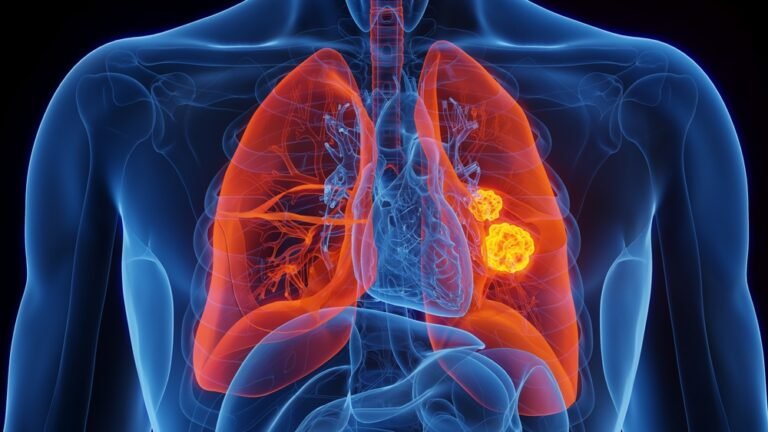Cough is the commonest presenting symptom in patients with lung cancer; others may have breathlessness and, less commonly, chest pain.
If there are any suspicious respiratory symptoms, a history of cigarette smoking is the best indicator of likelihood of lung cancer: 90% of cases are smokers or ex-smokers. Passive smoking is also relevant.
|
SYMPTOMS |
RANGE OF FREQUENCY (%) |
|
Cough |
45-74 |
|
Weight loss |
46-68 |
|
Breathlessness |
37-58 |
|
Chest pain |
27-49 |
|
Blood in sputum/cough |
27-29 |
|
Bone pain |
20-21 |
|
Hoarseness |
8-18 |
How to calculate pack years of smoking?
Number of cigarette packs smoked per day X Number of years os smoking
( one pack has 20 cigarettes)
Examples
- If 20 cigarettes smoked per day for a year it makes 1 pack year of smoking
- If 10 cigarettes smoked per day for a year it makes 0.5 pack year of smoking
- If 20 cigarettes smoked per day for half a year it makes 0.5 pack years
- If 20 cigarettes ( 1 pack) smoked per day for 20 years, or 40 cigarettes (two packs) per day for the 10 years both will make 20 pack-years of smoking.
The simplest way of estimating risk in patients is to calculate pack years of consumption. Duration is more important than smoking rate. Thus, 10 cigarettes per day for 40 years is more dangerous than 40 per day for 10 years (both of which are equivalent to 20 pack years).
Lung cancer screening
Screening is the deliberate detection of disease before symptoms develop. Screening for lung cancer has been recommended broadly by many expert panels since 2014 for following risk groups
- Age 50 to 80 years
- Current smoker or former smoker who quit within the past 15 years
- History of cancer
The potential of screening to detect early cancers may both increase the overall cure rate and allow more limited surgical resection to achieve cure.
Lung cancer screening test
Low-dose helical computed tomography (LDCT)is suggested for lung cancer screening .Low-dose CT (LDCT) is a technique that allows an image of the entire chest to be obtained in a single breath-hold with low radiation exposure. It should be done annualy in above mentioned risk groups. Screening should be discontinued 15 years after the date of smoking cessation or at age 80 years, whichever comes first.
Screening with CHEST XRAY with or without sputum tets is currently not recommended.








